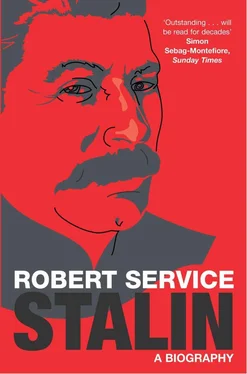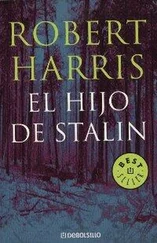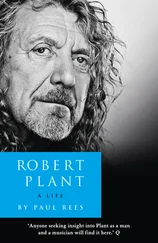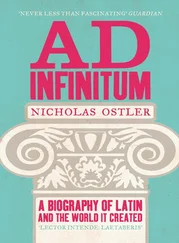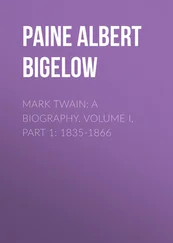October Revolution (1917): and working class motivation; effect on world order
Ogarëv, Yakov
OGPU ( earlier GPU): repressions; power; and Shakhty trial; and dekulakisation; interrogates army officers; and Nadya Allilueva’s funeral; incorporated in NKVD; see also NKVD
Okhrana: Stalin suspected of being agent for; investigates demonstrations in Batumi; ineffectiveness against political unrest; arrests Stalin; infiltrates revolutionary parties; informed of Bolshevist Central Committee; monitors Stalin; and Stalin’s exile in Turukhansk; acts against Bolsheviks
Okulov, Alexei
Onufrieva, Pelageya
Ordzhonikidze, Sergo: Lenin recruits to Central Committee; and Soviet expansionism; supports Stalin on status of republics; in Caucasian Bureau; in Stalin’s Testament; allies with Stalin; and Stalin’s deference to mother; takes charge of Central Control Commission; occasional disloyalty to Stalin; in Politburo; and Stalin’s fears of conspiracies; as Stalin’s confidant; letter from Nadya Allilueva; supports industrial expansion; Georgian origins; opposes Stalin’s strategic ideas; disbelieves campaign against Pyatakov; suicide; and popular adulation of Stalin
Orgburo: composition; changes postings; role
Orwell, George: Homage to Catalonia
Osinski, Nikolai
Overlord, Operation
Panslavism
Pasternak, Boris
Patolichev, Nikolai
Patolichev, N.S.
Pauker, Ana
Paulus, Field Marshal Friedrich von
Pavlov, Dmitri,
Pavlov, Ivan
peasants: Lenin’s policy on; unrest in Imperial Russia; and Stolypin’s reforms; demands on Provisional Government; in Civil War; and forced grain procurement; grain hoarding; Bukharin’s conciliatory policy on; and NEP; Stalin’s policy on; incorporated in industrial labour force; in administrative posts; risings and resistance; hatred of Soviet agricultural system; trading; punished; starvation; hatred of Stalin; defect during war; wartime trading; see also collectivisation; kulaks
People’s Commissariat of Enlightenment
People’s Commissariat of External Affairs
People’s Commissariat of Nationalities’ Affairs: Stalin heads; offices and organisation; Jewish section; and structure of Soviet Union
people’s democracies: in eastern Europe
Pereprygin family
Perm: military disaster at
Pervukhin, Mikhail
Pestkowski, Stanislaw
Peter I (the Great), Tsar
Petkov, Nikola
Petrograd see St Petersburg
Petrov (photographer)
Petrovski, G.I.
Philby, Kim
Piłsudski, Josef
Piotrovski, V.V.: In the Steps of Ancient Cultures
Platform of the Forty-Six
Platonov, Andrei
Platonov, Sergei
Plekhanov, Georgi: influence; at Stockholm conference (1905); Stalin criticises; at London conference (1907); as thinker
Pokrovski, Mikhail
Poland: Stalin meets Lenin in; independence accepted; Soviet war with (1920); as potential invader; Stalin dominates; Stalin pressurises (1939); Hitler plans conquest of; defeated by Germany (1939); Soviet part-occupation and regime in; historic hostility to USSR; post-war settlement; Soviet advance in; Stalin’s post-war aims in; elections in; Provisional Government; refuses execution of Gomulka; anti-Soviet demonstrations in
Poles (ethnic): killed in Great Terror
Poletaev, Nikolai
Polish Communist Party: Stalin persecutes exiles
Politburo: and Civil War; and national question; composition and unity in; Kamenev chairs after Lenin’s death; internal factions and disputes; and Stalin’s aggressive agrarian policy; and grain shortage; approves elimination of kulaks; power and status; membership numbers; and Marxist idealism; and suppression of opponents; under 1936 Constitution; treatment of Kazakhs and Ukrainians; sanctions purge of anti-Soviet elements; Stalin purges; reforms; and Stalin’s foreign policy; on Hitler’s rise to power; and Nazi-Soviet pact (1939); Stalin manipulates members; and succession to Stalin
Popkov, Pëtr
Popov, Nikolai
popular fronts
Port Arthur
Poskrëbyshev, Alexander
Pospelov, P.N.
Postyshev, Pëtr
Potsdam Conference (1945)
POUM (Spanish party)
Prague Conference (1912)
Pravda (newspaper): founded; Stalin writes for; Molotov and Shlyapnikov edit; and national question; Stalin appointed to editorial board; Stalin gives up editorship; on Nadya Allilueva’s death; and non-aggression pact with Germany (1939); reporting of war; cultic writings on Stalin; denigrates Western leaders; on Doctors’ Plot; limits posthumous praise of Stalin; prepares laudatory editorial on Stalin
Preobrazhenski, Yevgeni: urges Europe-wide revolution; sympathises with Trotski; opposes Stalin’s appointment as General Secretary; criticises economic policy; writings; allies with Stalin
Presidium (Bolshevik Party): internal Bureau established; and Stalin’s stroke; and succession to Stalin
Prokofiev, Sergei
Proletari (journal)
Proletarians Brdzola (journal)
proletariat, dictatorship of
Prosveshchenie (journal)
Provisional Government (Russian): formed (1917); Russian Bureau opposition to; Lenin demands overthrow of; rule and reforms; and conduct of First World War; break-up; unpopularity; conflict with Bolsheviks
Prussia: Soviet dominance in
Przewalski, Nikolai
Pugachëv revolt (1773–5)
Pushkin, Alexander
Putin, Vladimir
Pyatakov, Georgi
Pyatnitski, Osip
Qazbegi, Alexander: The Patricide
Rabochii put (newspaper)
Radek, Karl: and war with Poland; tried
Radzinski, Edvard
Rajk, László
Rakovski, Christian,
Ramishvili, Isidore,
Ramzin, Leonid
Rapallo, Treaty of (1922)
Rappoport, Yakov
Rasputin, Grigori
Red Army: beginnings; in Civil War; Perm defeat; Lenin proposes for actions in Europe; triumphs in Civil War; and Lenin’s European strategy; in war against Poland (1920); exercises control of outlying regions; conquers Georgia (1921); powers; and economic development; threatened trial of commanders; suppresses peasant risings; hatred of collectivisation; campaign against religion; collaboration with German army; reinforced in Far East; and Nazi threat; and Spanish Civil War; clash with Japanese; Stalin addresses (1941); recovers from first German onslaught; prisoners-of-war; wartime conscription; scorched-earth policy; strategy against Germans; casualties at Stalingrad; Kursk victory; westward advance against Germans; appeal in east-central Europe; and Western Allies; final offensive; inactivity in Warsaw Rising; unrestrained behaviour in European advance; experience of Western civilisation; occupation of eastern Europe; redesignated Soviet Army; Stalin sees as threat
Redens, Stanisław
Reisner, M.A.
religion: persecuted
Renner, Karl
Revolutionary-Military Council
Reznikov (informer)
Rhee, Syngman
Ribbentrop, Joachim von
Riga
Right Deviation
Robespierre, Maximilien
Rodionov, Mikhail
Rodzaevski, Konstantin
Rodzyanko, Mikhail
Röhm, Ernst
Rokossovski, Marshal Konstantin
Romania: as potential invader of USSR; Stalin woos; Soviet demands on; troops in USSR; and Panslavism; USSR demands reparations from; communist regime in; monarchy removed
Roosevelt, Franklin D.: condemns Nazi atrocities; Stalin entertains; meets Stalin at Tehran; broadcasts; cooperation with Stalin; Churchill meets; agrees wartime supplies to USSR; relations with Stalin; and post-war European settlement; at Yalta conference; requests United Nations Organisation; death; and prospective capture of Berlin; commitments to Stalin
Rozanov, Vladimir
Rudzutak, Yan
Читать дальше
